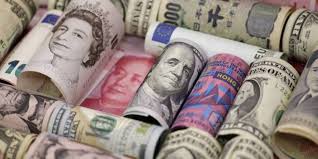With market liquidity opening at N167.26 billion last Friday, Nigeria’s interbank overnight lending rate jumped sharply to an average of 15 per cent from five per cent a week ago after the Central Bank of Nigeria (CBN) debited commercial lenders for treasury bills purchases.
Although market liquidity opened at N167.26 billion, the money went into repo after the apex bank sold treasury bills that significantly reduced level of cash in the banking system, pushing up cost of borrowing among banks.
A total of N190bn (about $670m) in treasury bills was raised at the stock exchange floor with maturities ranging from three months to one year, with yields broadly flat.
ALSO SEE: Naira strengthens against dollar at parallel market
The apex bank sold N28bn of the 3-month treasury bills at 9.98 per cent, compared with 9.99 per cent at the June 22 auction and N42bn worth of the 6-month bill at 12.24 per cent against 12.30 per cent previously.
The bank sold N120bn worth of the one-year paper at 14.99 per cent, the same rate as at the last auction. The treasury bills were issued as part of measures to finance the government budget deficit and help manage liquidity in the banking system.
Dealers said only a few major fund placers were in the market, while there were no big cash inflows into the system from other sources.” The market was short by over 200 billion naira, putting many banks under pressure to borrow at whatever cost to cover their positions,” one dealer said. Nigerian banks depend largely on the monthly disbursement of public funds to finance their operations and a major swing in liquidity usually leads to a shortage and causes rates to climb.

 Health6 days ago
Health6 days ago
 Entertainment1 week ago
Entertainment1 week ago
 Crime6 days ago
Crime6 days ago
 Education1 week ago
Education1 week ago
 Health1 week ago
Health1 week ago
 Comments and Issues7 days ago
Comments and Issues7 days ago
 Football7 days ago
Football7 days ago
 Latest6 days ago
Latest6 days ago













